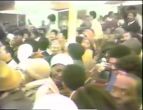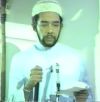United Democratic Front
Video Interviews
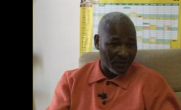 At that time, I was the president of the Cape Youth Congress as preparations of the UDF were made.
At that time, I was the president of the Cape Youth Congress as preparations of the UDF were made. Video interview segment with Roseberry Sonto [5:18]
2007
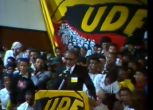 "It is composed of different organizations which do not agree necessarily in all respects with each other's points of view."
"It is composed of different organizations which do not agree necessarily in all respects with each other's points of view." [2:34]
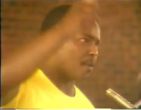 "Just as the women of our country came here in '56 to remind you that they did not accept your laws ... that voice is still alive."
"Just as the women of our country came here in '56 to remind you that they did not accept your laws ... that voice is still alive." [3:16]
January 22, 1984
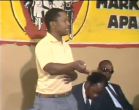 "We in the UDF feel humbled and are proud to be associated with an organization like that ..."
"We in the UDF feel humbled and are proud to be associated with an organization like that ..." [1:03]
January 22, 1984
Summary
The United Democratic Front (UDF) was created in 1983 to provide a forum to oppose the Tricameral Constitution, which created a new parliament with separate, but token, legislatures for Coloureds and Indians, in addition to the all-powerful and all-white House of Assembly. Africans, representing nearly three-quarters of the population, remained totally excluded. This purely cosmetic reform had the unintended effect of unifying and radicalizing opponents of apartheid. The UDF came to include more than 500 political, labor, youth, sport, religious, and community organizations from across the country.The UDF was not in competition with other liberation movements, but rather it was an umbrella organization for anti-apartheid groups. The UDF adopted the Freedom Charter, and linked itself increasingly openly with the still-banned African National Congress. Youths were active in the UDF and continued to demonstrate over education issues. The emergence of indigenous liberation theology and the increased brutality of the state toward people advocating equality and justice brought religious organizations into the UDF, exemplified by the activism of the Reverend Allan Boesak and Archbishop Desmond Tutu, who was awarded the Nobel Peace Prize in 1984.
Related Multimedia Resources:
Web Documents
Historical Document: "Statement by UDF National Executive Committee on National Launching of UDF"
By National Executive Committee of the United Democratic Front
[more info]
[Go to source directly and leave this site]
By National Executive Committee of the United Democratic Front
[more info]
[Go to source directly and leave this site]

Resource: "List of Organisations which Support and are Affiliates of the Regional UDF"
By Interim Publicity Secretary of the UDF
[more info]
[Go to source directly and leave this site]
By Interim Publicity Secretary of the UDF
[more info]
[Go to source directly and leave this site]

Suggested Reading
The UDF: A History of the United Democratic Front in South Africa, 1983-1991
By Jeremy Seekings
[more info]
By Jeremy Seekings
[more info]
